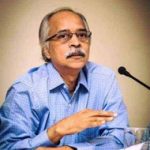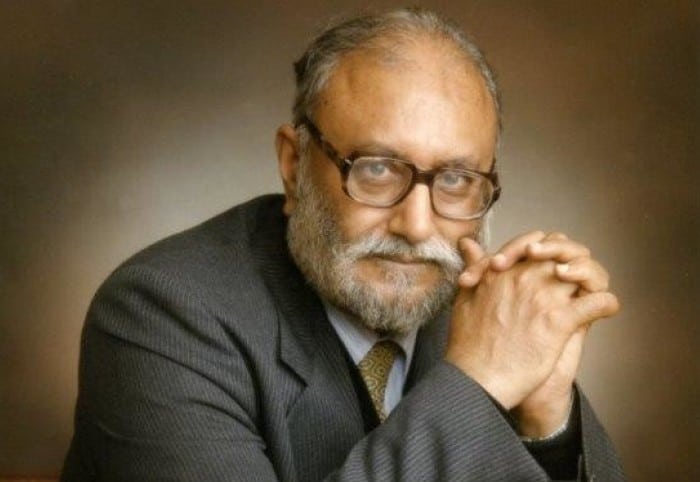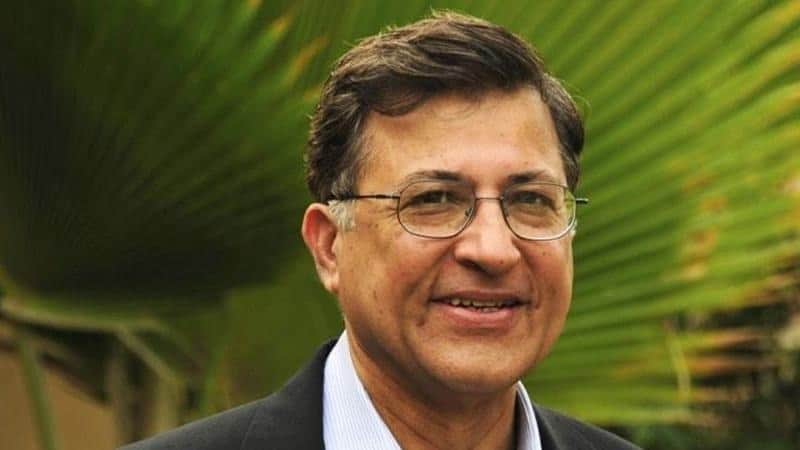
What is common to Nobel Laureate Dr Abdus Salam, Nuclear Physicist, Dr A Q Khan and Physicist Dr Pervez Hoodbhoy?
Obviously, all are top scientists and citizens of the Islamic Republic of Pakistan. But, the commonness ends there. Each of them, have faced very different treatment and respect from their country.
When Dr Abdul Qadeer Khan, better known as A Q Khan, considered the ‘Architect’ of Pakistan’s nuclear bomb died on October 10, the Government led by Prime Minister, Imran Khan announced a ‘State Funeral’ in his honour.
The 85-year-old Khan led an eventful life, driving Pakistan’s nuclear ambitions, courting controversy over smuggling of technology to countries like Iran, North Korea, Libya etc., and placed under house arrest by former President, Pervez Musharraf. Yet, the present government showered recognition on him.
In contrast, Dr Mohammad Abdus Salam, the 1979 Nobel Laureate for Physics, Pakistan’s only Laureate and the first scientist from the Islamic world was disowned and disgraced by the country. The reason being that he belonged to the Ahmadiyya sect, which Pakistan does not recognise as a community of Muslims.
Then, you have the case of the 71-year-old, Dr Pervez Amirali Hoodbhoy, the reputed Nuclear Physicist and activist, who is forthright, questioning the lack of scientific temper and authoritarian rule & dominance of religion in politics in Pakistan without any fear. An author of the book, ‘Islam and Science’, he remains a critic of the establishment and is hardly recognised for his immense contribution. Coincidentally, Dr Hoodbhoy happens to be one of the well-known students of Dr Salam.
The experiences of these globally known scientists in a way reflect the attitude of the Pakistan Government to science and scientists. It raises several questions too. For instance, is it right to disown a person, especially a Nobel Laureate, just on the grounds that he does not belong to the dominant religion of the country?
If Pakistan disowned its only Nobel Laureate, Indians have often gone overboard owning up several India born, foreign citizens who won—Dr Hargobind Khorana, Dr S Chandrasekhar, Dr Venky Venkatraman, Sir Ronald Ross as well as honouring foreign-born, Indian citizens like Mother Theresa (Albania born). To date, Dr C V Raman remains the only India born scientist to win the coveted prize for his work in India.
Salam, the Nobel sidelined

Interestingly, Dr Salam, born in Jhang in the erstwhile Punjab Province of British India Pakistan in 1926, was the Scientific Adviser to the Ministry of Science & Technology from 1960-74, during which he influenced the space programme, scientific infrastructure and efforts in atomic energy and some initial planning of the nuclear bomb. However, he got a rude shock in 1974, when the Pakistan Parliament passed the Second Amendment to the Constitution that declared Ahmadiyyas to be non-Muslims. In protest, Salam left Pakistan for London. He did not cut off ties with the scientific community in Pakistan. Dr Salam died in 1996.
Another irony, Dr Salam, who saw religion as a fundamental part of his work and also quoted verses from the Holy Quran while receiving the Nobel Prize, was subjected to post his death is with regard to his place of final resting place in the Bahisti Maqbara. The epitaph on his tomb initially read “First Muslim Nobel Laureate.” But on the orders of the local magistrate, the word Muslim was erased making him just the “First Nobel Laureate.”
Among his teachers were Paul Dirac and Prof Anilendra Ganguly, who taught him Mathematics at the Santana Dharma College in Lahore. Legend has it that after receiving the Nobel Prize in 1979, Dr Salam reportedly went to Prof Ganguly’s home in Kolkata and placed it in his hands and acknowledged his contributions.
Prof Yash Pal, one of India’s top Physicists and Science Populariser famously remarked that he too should perhaps get the Nobel Prize because he was born in Jhang as his contemporary, Dr Salam in the same year,1926 and pursued Physics. Prof Yash Pal, who went on to be honoured with the Padma Vibhushan passed away in 2017.
A Q Khan gets honours

The life of Dr Khan too saw many ups and downs. Controversies dogged his career. At one stage he was placed under ‘House Arrest’ for years. But, he was awarded the Nishan-i-Imtiaz for his services to the country. Finally, on his death, the Pakistan government accorded a ‘State Funeral’.
Born in 1936 in Bhopal, India, Dr Khan immigrated along with his family to Pakistan in 1947 after the partition. He did a science degree at Karachi University in 1960, then went on to study metallurgical engineering in Berlin before completing advanced studies in the Netherlands and Belgium.
After learning of India’s nuclear test in 1974, he had joined the nation’s clandestine efforts to develop nuclear power. He had founded the Khan Research Laboratories in 1976 and was its chief scientist and director for many years, according to Radio Pakistan.
In 2004, Dr Khan was at the centre of a massive global nuclear proliferation scandal. In a series of dramatic developments, he was accused by then army chief and President Pervez Musharraf of running a rogue proliferation network for nuclear material. Shortly after Musharraf’s announcement, a recorded confession by Khan was aired in which he took sole responsibility for all the nuclear proliferation that had been revealed. He was subsequently placed under house arrest. A Court ended it in February 2009, but his movements were strictly guarded, according to a report in The Dawn.
Dr Hoodbhoy is struggling to be heard

A top-notch, nuclear physicist, Dr Hoodbhoy stands steadfast in his views on scientific temper, secularism, free expression and quality education. He is considered one of Pakistan’s most vocal, progressive and liberal members of the intelligentsia.
On the nuclear front, Dr Hoodbhoy finds fault with the competitive tests conducted by India and Pakistan, which only escalated tensions and militarisation in the sub-continent. On several occasions, he openly criticised Dr A Q Khan’s “research claims and nefarious activities.”
He is termed as an activist too as if it is harmful to be an activist.
A product of MIT in Boston, who worked with Dr Salam and Riazuddin, Dr Hoodbhoy was associated for long with the Quaid-E-Azam University in teaching and research. He is the author of Islam and Science: Religious Orthodoxy and the Battle for Rationality.
Somasekhar Mulugu, former Associate Editor & Chief of Bureau of The Hindu BusinessLine, is a well-known political, business and science writer and analyst based in Hyderabad

